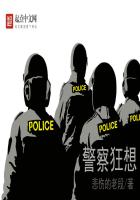Zhílin crossed himself took the lock of his shackles in his hand to prevent its clattering, and went along the road, dragging his shackled leg, and looking towards the place where the moon was about to rise. He now knew the way. If he went straight he would have to walk nearly six miles. If only he could reach the wood before the moon had quite risen! He crossed the river; the light behind the hill was growing whiter. Still looking at it, he went along the valley. The moon was not yet visible. The light became brighter, and one side of the valley was growing lighter and lighter, and shadows were drawing in towards the foot of the hill, creeping nearer and nearer to him.
Zhílin went on, keeping in the shade. He was hurrying, but the moon was moving still faster; the tops of the hills on the right were already lit up. As he got near the wood the white moon appeared from behind the hills, and it became light as day. One could see all the leaves on the trees. It was light on the hill, but silent, as if nothing were alive; no sound could be heard but the gurgling of the river below.
Zhílin reached the wood without meeting any one, chose a dark spot, and sat down to rest.
He rested and ate one of the cheeses. Then he found a stone and set to work again to knock off the shackles. He knocked his hands sore, but could not break the lock. He rose and went along the road. After walking the greater part of a mile he was quite done up, and his feet were aching. He had to stop every ten steps.
'There is nothing else for it,' thought he. 'I must drag on as long as I have any strength left. If I sit down, I shan't be able to rise again. I can't reach the fortress; but when day breaks I'll lie down in the forest, remain there all day, and go on again at night.'
He went on all night. Two Tartars on horseback passed him; but he heard them a long way off, and hid behind a tree.
The moon began to grow paler, the dew to fall. It was getting near dawn, and Zhílin had not reached the end of the forest.
'Well,' thought he, 'I'll walk another thirty steps, and then turn in among the trees and sit down.'
He walked another thirty steps, and saw that he was at the end of the forest. He went to the edge; it was now quite light, and straight before him was the plain and the fortress. To the left, quite close at the foot of the slope, a fire was dying out, and the smoke from it spread round. There were men gathered about the fire.
He looked intently, and saw guns glistening. They were soldiers -- Cossacks!
Zhílin was filled with joy. He collected his remaining strength and set off down the hill, saying to himself: 'God forbid that any mounted Tartar should see me now, in the open field! Near as I am, I could not get there in time.'
Hardly had he said this when, a couple of hundred yards off, on a hillock to the left, he saw three Tartars.
They saw him also and made a rush. His heart sank. He waved his hands, and shouted with all his might, 'Brothers, brothers!
Help!'
The Cossacks heard him, and a party of them on horseback darted to cut across the Tartars' path. The Cossacks were far and the Tartars were near; but Zhílin, too, made a last effort.
Lifting the shackles with his hand, he ran towards the Cossacks, hardly knowing what he was doing, crossing himself and shouting, 'Brothers!
Brothers! Brothers!'
There were some fifteen Cossacks. The Tartars were frightened, and stopped before reaching him. Zhilin staggered up to the Cossacks.
They surrounded him and began questioning him. 'Who are you? What are you? Where from?
But Zhílin was quite beside himself, and could only weep and repeat, 'Brothers! Brothers!'
Then the soldiers came running up and crowded round Zhílin -- one giving him bread, another buckwheat, a third vódka: one wrapping a cloak round him, another breaking his shackles.
The officers recognized him, and rode with him to the fortress. The soldiers were glad to see him back, and his comrades all gathered round him.
Zhílin told them all that had happened to him.
'That's the way I went home and got married!' said he. 'No. It seems plain that fate was against it!'
So he went on serving in the Caucasus. A month passed before Kostílin was released, after paying five thousand roubles ransom. He was almost dead when they brought him back.
(Written in 1870.)














